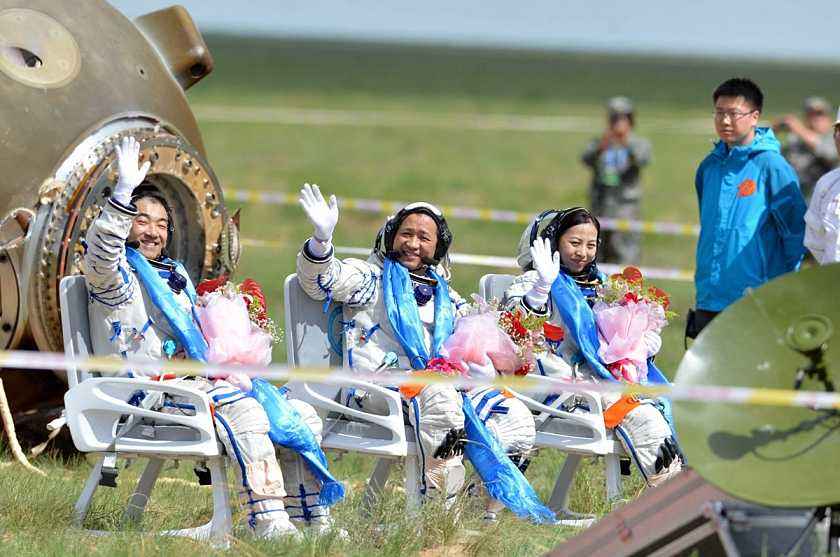The making of heroes - the women and men of China's space program
Xinhua | Updated: 2018-01-21 13:24

successful landing at the main landing site in north China's Inner Mongolia Autonomous
Region on June 26, 2013. [Photo/Xinhua]
While chasing that dream, he failed the selection tests for Shenzhou-5, Shenzhou-6, Shenzhou-7 and Shenzhou-9 manned space missions. But Zhang didn't give up. Instead, he worked even harder.
"Without exceptional tenacity," said Huang Weifen, deputy chief designer of the taikonaut system with the Taikonaut Center of China, "they don't make it."
Apart from theoretical study, taikonauts are subjected to a panoply of physical and psychological training.
Hypoxia was Zhang's problem, crucial to taikonaut selection.
In a pressure chamber, taikonauts go through a simulated ascent from ground level to an altitude of 5,000 meters in five minutes, with all the dizziness, nausea and even shock that oxygen deprivation brings.
In an attempt to turn his weakness into strength, Zhang was always the first to arrive at the training center and the last to leave. In the selection test for Shenzhou-10, he top-scored.
The aerotrim, or spinning chair, is classic taikonaut training designed to strengthen balance and spatial orientation. Lasting ten minutes is considered "excellent," but Zhang always pushed himself on for 15 minutes.
Nie Haisheng said, Zhang always does things "perfectly."
Training for spacewalks in a weightless environment, Zhang wore a suit weighing over 160 kilograms and stayed underwater for four hours at a time, losing two kilograms or more in each session.
High-G training in a centrifuge forces the body to endure pressure equaling eight times its weight. Muscles on the face become distorted, breathing is difficult and the forehead bulges. There is a red stop button inside the centrifuge, but Zhang has never pressed it. When mother of Liu Wang, one of the crew of Shenzhou-9, had a chance to watch her daughter's centrifuge training on a monitor, she cried and refused to watch any more.























